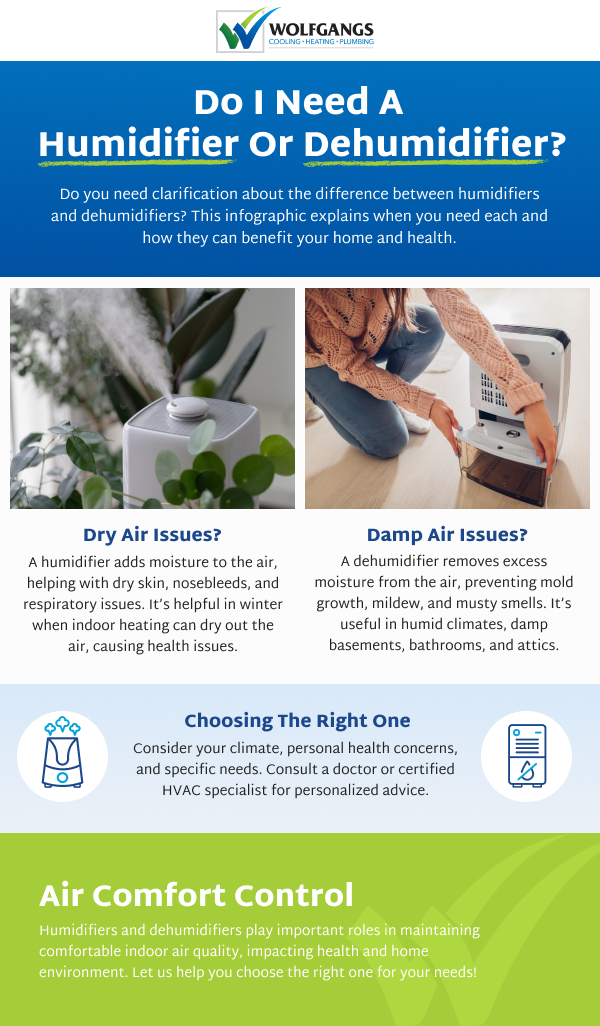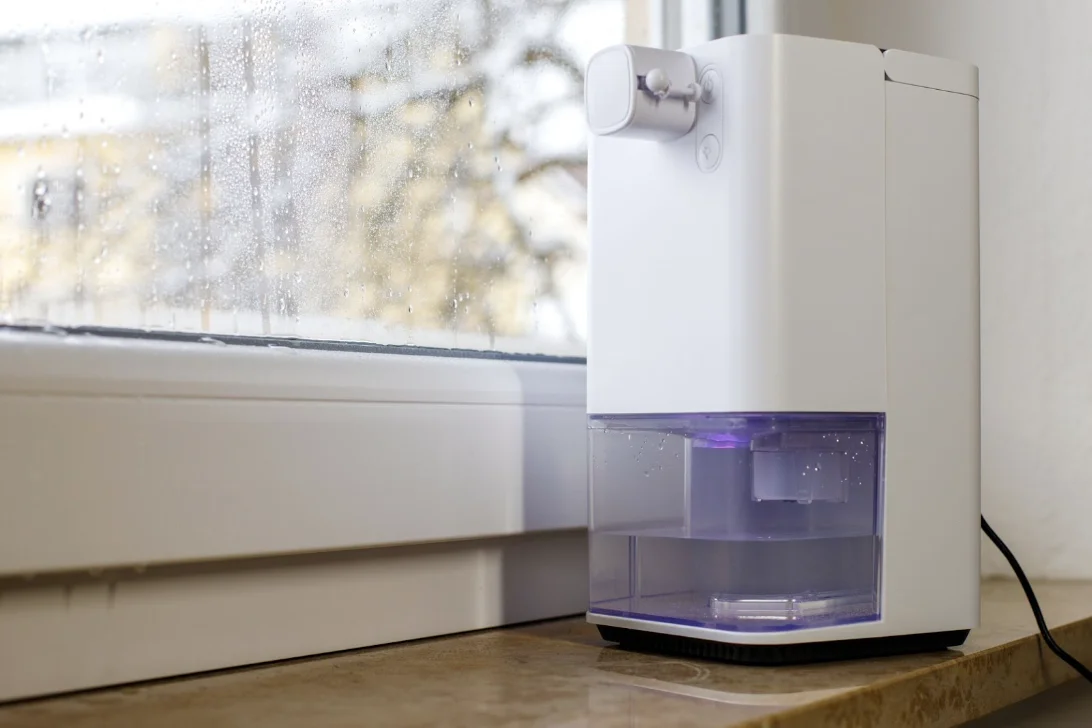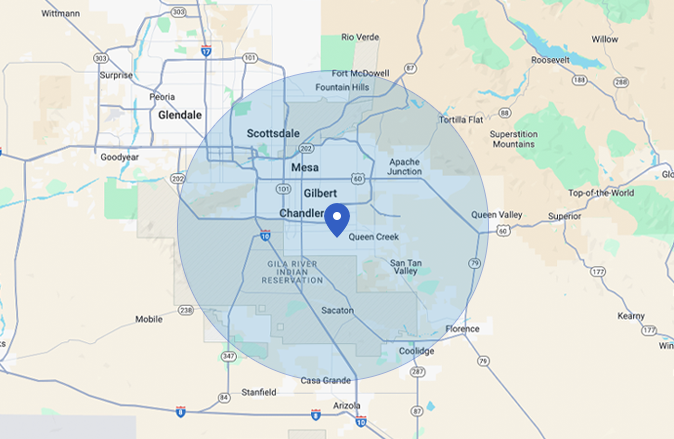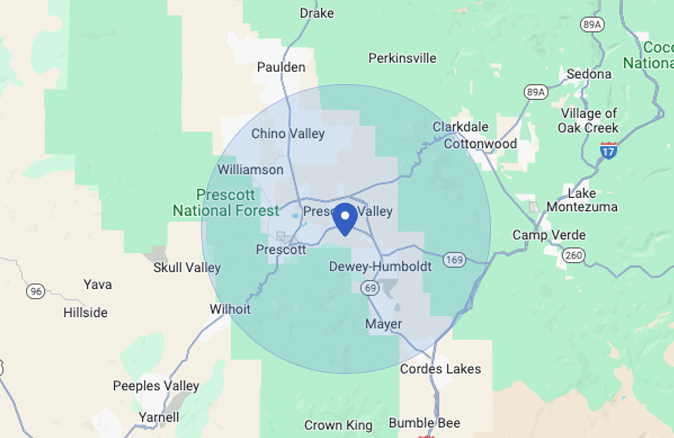Maintaining the right humidity level in your home is essential for your comfort and health. Whether your home’s air is lacking in moisture or has too much, this comprehensive guide will help you select the type of device that will benefit you the most.
Table of Contents
- The Difference Between Humidifiers and Dehumidifiers
- Types of Humidifiers
- What to Look for When Purchasing a Humidifier
- Types of Dehumidifiers
- Choosing the Right Dehumidifier Size
- Options to Consider When Purchasing a Dehumidifier
- Additional Considerations for Humidifiers and Dehumidifiers
- Humidifier and Dehumidifier Safety Checklist
- Contact Wolfgangs for Purchasing Assistance

The Difference Between Humidifiers and Dehumidifiers
Humidifiers
Humidifiers add moisture to your home’s air, alleviating common ailments such as:
- Dry nasal passages
- Dry skin
- Chapped or cracked lips
- Sore throats
- Coughs
- Allergies
They are also great for preventing paint and wallpaper from cracking, peeling, and warping. Running a humidifier will also reduce static electricity in your home and protect art and musical instruments from damage.
Dehumidifiers
These devices remove excess moisture from the air, helping to prevent mold growth, reduce dust mites, and alleviate issues and discomfort associated with humidity. They are beneficial in damp climates and during the summer months – even if you already have air conditioning in your home.
Types of Humidifiers

Cool Mist Humidifiers
Cool mist humidifiers are the most popular humidifiers on the market. The cool mist produced by this type of humidifier can help reduce swelling within your nasal passages, providing relief from colds and other winter ailments.
There are two types of cool mist humidifiers.
Evaporative Humidifiers
These humidifiers force air through a moistened wick with a fan. This adds moisture to the air while cooling it. Replacement wicks cost the average consumer between $10 and $20.
Ultrasonic Humidifiers
These humidifiers use a vibrating diaphragm (known as a nebulizer) to produce a cool mist. By using this instead of a fan, ultrasonic humidifiers are quieter and more efficient than evaporative humidifiers, making them popular choices for apartment living.
Warm Mist Humidifiers
Also known as steam vaporizers, warm mist humidifiers boil water to create steam, restoring humidity to your home’s air while also warming it. While these are less energy efficient than cool mist humidifiers, their ability to add warmth to a home makes them appealing in colder climates.
They are not recommended for use around children because of hot water risks.
You should also be aware that warm air is not good for relieving cold symptoms – stick to cool mist humidifiers for that.
Dual Mist Humidifiers
If you’re having a hard time choosing between a warm mist humidifier or a cool mist humidifier, opt for a dual mist humidifier, which has settings for both.
Whole House Humidifiers
Whole house humidifiers are integrated into a home’s HVAC system to control humidity throughout the entire house. These units require professional installation but can last for decades with proper maintenance. Installing a whole house humidifier can increase your home’s value.
What to Look for When Purchasing a Humidifier
Room Size
To choose an appropriately sized humidifier, measure the room you intend to humidify in square feet.
Tabletop humidifiers are the typical choice for small and medium sized rooms because of their affordability and portability. Keep in mind that their small tanks require frequent refills.
For large spaces, choose a humidifier with a larger water tank such as a console model. While these can be cumbersome to move (especially when full), that is likely a price worth paying to avoid needing to refill your humidifier multiple times per day.
Maintenance Requirements
Consider how easy it is to clean the humidifier you are thinking of buying. Standard humidifier maintenance tasks include:
- Cleaning the tank to prevent mold, mildew, and bacteria from growing
- Cleaning and clearing misting outlets
- If you have an evaporative humidifier, check if the wick needs replacing
Also consider whether or not your humidifier might need professional maintenance and how much that might cost.
Noise Level
Consider your living space. Choose quieter models for bedrooms and other spaces for relaxation. Consider large, powerful humidifiers for rooms that experience frequent traffic.
Extra Features
Look for features like humidistats, auto shut-off, and antimicrobial protection.
Types of Dehumidifiers

Compressor Dehumidifiers
Compressor dehumidifiers take in air from a room and pass it through internal coils. This causes the moisture in the air to condense and drip into the tank.
Compressor dehumidifiers are highly effective in climates where temperatures and humidity levels are high. They are ideal for basements, bathrooms, and large living spaces.
Desiccant Dehumidifiers
Desiccant dehumidifiers use desiccant materials (like silica gel) to absorb moisture from the air they intake. This process heats the air before expelling it back into your home. Since the desiccant material absorbs moisture, this type of dehumidifier does not produce waste water.
On average, they are quieter and lighter than compressor models. While they cannot remove as much moisture from the air as compressor dehumidifiers, they are a great choice for extremely cold environments where a compressor dehumidifier is not appropriate.
Choosing the Right Dehumidifier Size
Small Capacity Dehumidifiers
These dehumidifiers are best for areas less than 600 square feet that are “damp” rather than wet. They can remove up to 30 pints of moisture per day.
Medium Capacity Dehumidifiers
Medium capacity dehumidifiers are best for areas between 600 and 800 square feet. They can remove 30-40 pints of moisture per day. They are more powerful than small capacity dehumidifiers but not powerful enough for spaces with serious moisture problems.
Large Capacity Dehumidifiers
These are designed for spaces between 600 and 1,200 square feet. They can remove more than 40 pints of moisture from the air in a single day. They are the best choice for larger spaces and spaces with significant moisture problems.
Whole House Dehumidifiers
Whole house dehumidifiers can remove moisture from areas up to 5,000 square feet. Whole house dehumidifiers can remove more than 100 pints of moisture from a home’s air in a single day.
There exist standalone whole house dehumidifiers and ones that can be integrated into a home’s existing HVAC system.
Options to Consider When Purchasing a Dehumidifier
Capacity
Select a model based on the size of the area you need dehumidified. Consider that area’s moisture level and temperature.
While models with continuous drainage via a hose are a little more expensive, they are much more convenient for prolonged use.
Energy Efficiency
Look for Energy Star Certified models to avoid increasing your energy bills more than you need to.
Additional Considerations for Humidifiers and Dehumidifiers
Safety Features
Ensure the unit you’re thinking of purchasing has safety features like overheat protection, tip-over switches, and cool-to-the-touch exteriors.
Portability
Consider the unit's weight and ease of transportation if you are planning on moving it between rooms. Units with built in wheels are much easier to transport.
Brand Reliability and Warranty
Check the reviews of the unit you are thinking about purchasing and check its warranty coverage.
Humidifier and Dehumidifier Safety Checklist:
- Ensure the device is standing on a hard, level, nonflammable surface.
- Keep children and pets away from the device.
- Maintain at least 3 feet of clearance from combustible materials.
- Turn off the device when leaving the room or going to bed.
- Unplug the device when not in use.
- Regularly check the cord for damage and refrain from using it if the cord is frayed or worn.
- Avoid plugging another electrical device or an extension cord into the same outlet as a humidifier or dehumidifier.
Contact Wolfgangs for Purchasing Assistance
We hope you have found this dehumidifier and humidifier buying guide helpful.
If you are interested in purchasing a humidifier or dehumidifier and want to feel confident in your decision, the indoor air quality experts at Wolfgangs Cooling, Heating & Plumbing are ready to assist you. Choosing the right humidifier or dehumidifier involves considering many factors, and we are here to walk you through the process.
Call us at 928.767.8905 for more information or to inquire about having your home HVAC system outfitted with a humidifier or dehumidifier.








